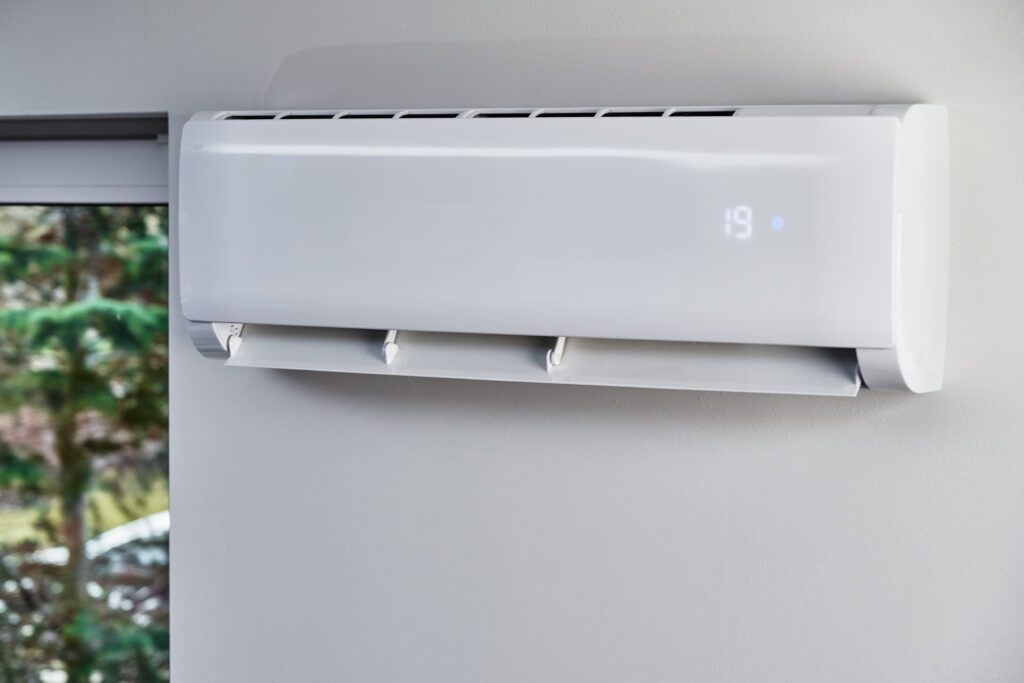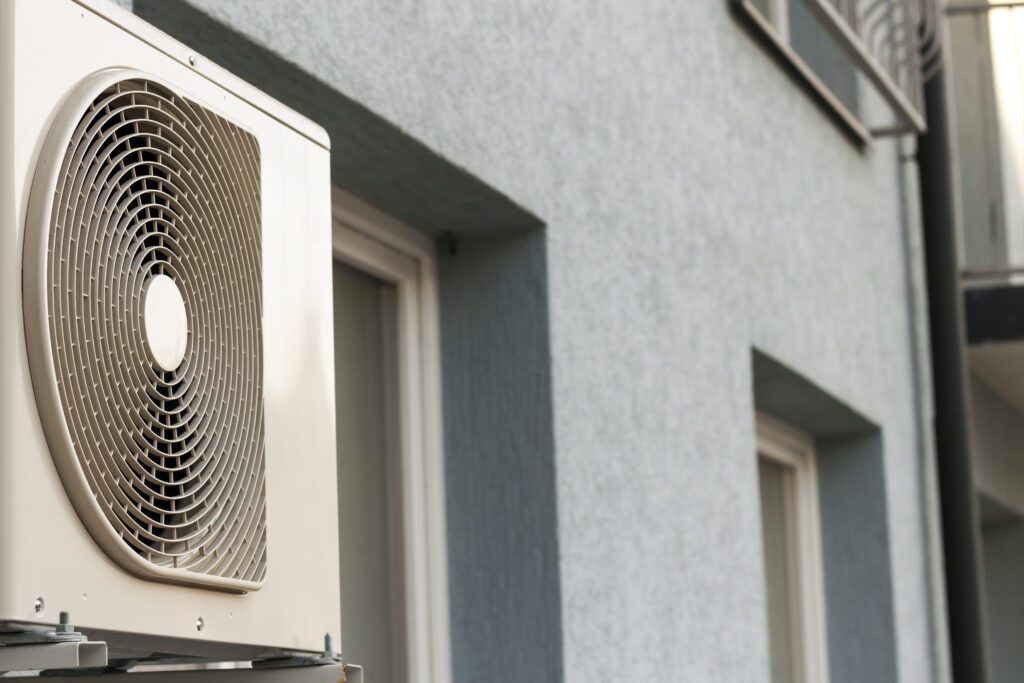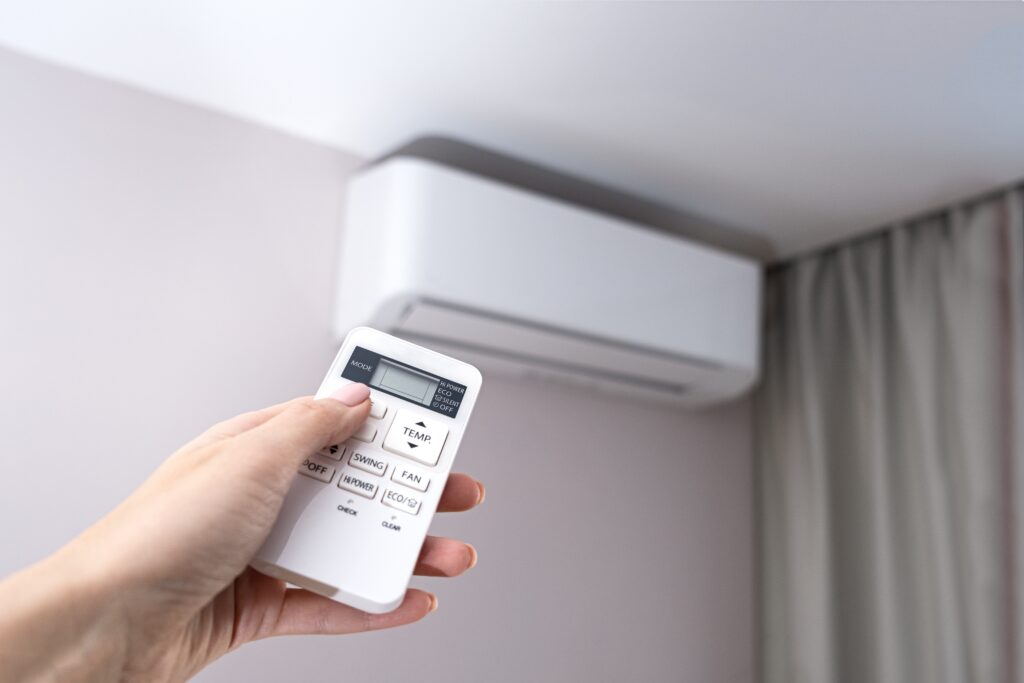Having a clean and efficient air conditioning (AC) system is crucial for maintaining a comfortable and healthy indoor environment. One important component that plays a significant role in keeping your AC system running smoothly is the air filter. Understanding the importance of a clean AC filter and knowing when to replace it are essential for optimal performance and longevity. In this article, we will explore the role of an AC filter, the benefits of regular filter replacement, signs indicating the need for replacement, how often you should replace your AC filter, choosing the right filter, and the steps involved in replacing it.
Understanding the Importance of a Clean AC Filter
An AC filter serves as a barrier that traps airborne contaminants such as dust, pollen, pet dander, and other particles. It plays a vital role in improving indoor air quality by preventing these pollutants from circulating throughout your home. Additionally, a clean filter allows for better airflow, which helps your AC system operate efficiently and maintain optimal performance.
The Role of an AC Filter
The primary function of an AC filter is to capture and remove airborne particles that can negatively impact your indoor air quality. As the air passes through the filter, contaminants are trapped, preventing them from entering the AC unit and being expelled into your home. This filtration process not only improves the air you breathe but also protects the AC system’s internal components from dust and debris buildup, which can lead to operational issues.
Benefits of Regular Filter Replacement
Regular filter replacement is essential to maintain the overall efficiency and effectiveness of your AC system. Some key benefits of replacing your AC filter regularly include:
- Improved Indoor Air Quality: A clean filter ensures that the air circulating in your home is free from harmful particles, allergens, and irritants, promoting a healthier living environment.
- Enhanced Energy Efficiency: When the filter is clean, the AC system doesn’t have to work as hard to push air through, resulting in improved energy efficiency and reduced utility bills.
- Extended AC System Lifespan: A clean filter prevents dust and debris from accumulating on the AC unit’s vital components, reducing the risk of damage and prolonging its lifespan.
However, it’s important to note that not all AC filters are created equal. There are different types of filters available on the market, each with its own level of filtration efficiency. The most common types include fiberglass filters, pleated filters, and high-efficiency particulate air (HEPA) filters.
Fiberglass filters are the most basic and affordable option. They are designed to capture larger particles but may not be as effective at trapping smaller particles like pollen or pet dander. Pleated filters, on the other hand, have a larger surface area and are capable of capturing smaller particles. They offer better filtration efficiency and are a popular choice for homeowners who want to improve their indoor air quality.
For those with severe allergies or respiratory conditions, HEPA filters are the best option. These filters are highly efficient at trapping even the tiniest particles, including bacteria and viruses. However, it’s important to keep in mind that HEPA filters may require a more powerful AC system to maintain proper airflow due to their denser construction.
When it comes to filter replacement, the frequency will depend on various factors such as the type of filter, the level of pollutants in your area, and the usage of your AC system. As a general rule of thumb, it’s recommended to replace fiberglass filters every 30 days, pleated filters every 90 days, and HEPA filters every 6 to 12 months.
By understanding the importance of a clean AC filter and choosing the right type for your needs, you can ensure that your AC system operates efficiently, providing you with clean and healthy indoor air for years to come.
Signs Your AC Filter Needs Replacement

Recognizing the signs that indicate your AC filter needs replacement can help you avoid potential problems and ensure optimal performance. Here are some common indicators:
Decreased Airflow
If you notice a significant reduction in the amount of air flowing from your AC vents, it may be a sign that your filter is clogged. A dirty filter restricts airflow, causing the AC system to work harder to cool your space.
Increased Energy Bills
When your AC system has to compensate for a clogged filter by working harder, it consumes more energy. This increased energy usage will be reflected in higher utility bills. If you notice a sudden spike in your energy costs, it could be a sign that your filter needs replacement.
Unusual Noises from the AC Unit
A clogged filter can cause airflow disruptions that result in unusual noises coming from your AC unit. If you hear rattling, wheezing, or other unusual sounds when your AC is running, it may be due to a dirty filter.
Another sign that your AC filter needs replacement is a noticeable decrease in the air quality within your home. A clogged filter can lead to an accumulation of dust, dirt, and other allergens in the air, which can exacerbate respiratory issues and allergies. If you or your family members are experiencing more frequent sneezing, coughing, or congestion, it may be time to check and replace your AC filter.
Uneven Cooling
When your AC filter is clogged, it can disrupt the airflow throughout your home, leading to uneven cooling. You may notice certain rooms or areas in your house are not as cool as others, even when the AC is running. This inconsistency in temperature can be a clear indication that your filter is overdue for a replacement.
How Often Should You Replace Your AC Filter?

The frequency at which you should replace your AC filter depends on various factors, including the type of filter, household conditions, and system usage. While there are general recommendations, it is important to consider specific circumstances.
Regularly replacing your AC filter is crucial for maintaining indoor air quality and the efficiency of your HVAC system. A clean filter ensures that your system can operate effectively, preventing dust, pollen, and other particles from circulating in your home.
Standard Recommendations for Filter Replacement
As a general guideline, it is recommended to replace disposable AC filters every 1 to 3 months. However, this can vary based on factors such as the number of occupants in your home, the presence of pets, and the quality of your indoor air. Homes with multiple occupants or furry friends may require more frequent filter changes.
Choosing the right filter for your HVAC system is essential. There are various types of filters available, including fiberglass, pleated, electrostatic, and HEPA filters. Each type has different levels of filtration efficiency and lifespan, so it’s important to select one that meets your specific needs.
Factors Influencing Filter Lifespan
In addition to the standard recommendations, several factors can affect the lifespan of your AC filter. These include:
- Seasonal Changes: Filters tend to get dirtier during peak cooling and heating seasons when the AC system is used more frequently.
- Pet Ownership: If you have pets that shed dander or fur, the filter may become clogged more quickly. Consider checking and changing the filter more often to maintain optimal performance.
- Home Renovations: Dust and debris generated during construction or renovation projects can clog filters faster. It is advisable to replace the filter more frequently during these times.
Regular maintenance of your HVAC system, including filter replacement, can help extend the lifespan of your equipment and improve energy efficiency. By staying proactive and attentive to your filter replacement schedule, you can ensure that your AC system operates smoothly and effectively, providing you with clean and comfortable air year-round.
Choosing the Right AC Filter

Selecting the right AC filter is essential to ensure efficient filtration and optimal performance of your AC system. Consider the following factors when buying a new filter:
Ensuring that your air conditioning system is equipped with the appropriate filter can significantly impact the air quality in your home. Not only does a well-suited filter help in trapping dust, pollen, and other airborne particles, but it also contributes to the overall efficiency and longevity of your AC unit. By taking the time to choose the right filter, you are investing in the well-being of both your HVAC system and your family.
Types of AC Filters
There are various types of AC filters available, including fiberglass, pleated, electrostatic, and high-efficiency filters. Each type has different characteristics and filtration abilities. Assess your specific needs, such as allergies or respiratory sensitivities, to determine the most suitable filter type for your home.
Fiberglass filters are cost-effective and work well to capture larger particles, while pleated filters offer better filtration of smaller particles due to their increased surface area. Electrostatic filters use self-charging fibers to attract particles, making them efficient at trapping dust and allergens. High-efficiency filters, such as HEPA filters, are known for their superior filtration capabilities, ideal for those with severe allergies or asthma.
Considerations When Buying a New Filter
When purchasing a new filter, consider the following factors:
- Filter Size: Ensure you know the correct size needed for your AC system. Refer to the manufacturer’s guide or consult a professional if you are unsure.
- Filtration Rating: Look for filters with higher Minimum Efficiency Reporting Value (MERV) ratings, as they provide better filtration and capture smaller particles.
- Budget and Longevity: Balancing your budget with the longevity and effectiveness of the filter is important. Opt for a filter that offers a good balance between cost and performance.
Remember that regular maintenance, including replacing your AC filter as recommended by the manufacturer, is crucial for optimal performance. Neglecting filter replacement can lead to reduced efficiency, increased energy consumption, and potential damage to your HVAC system. By staying proactive in your filter selection and replacement, you can enjoy cleaner air and a more efficient air conditioning system.
Steps to Replace Your AC Filter

Replacing your AC filter is a straightforward process that can be done without professional assistance. Here’s a step-by-step guide:
Locating Your AC Filter
The AC filter is typically located in the return air duct or near the AC unit. Consult your AC system’s user manual or contact the manufacturer to find the exact location of your filter.
Proper Removal and Installation
To remove and install a new filter, follow these steps:
- Turn off your AC system to ensure safety during the process.
- Locate the filter and remove the access panel or cover.
- Note the direction of the airflow indicated on the filter (usually indicated by arrow symbols).
- Remove the old filter carefully, taking note of its size and orientation.
- Dispose of the old filter properly.
- Insert the new filter, ensuring it matches the correct size and orientation.
- Secure the access panel or cover back into place.
- Turn on your AC system and check for proper airflow and operation.
Regularly replacing your AC filter is a simple yet effective way to maintain optimal air quality and efficient cooling. By understanding the importance of a clean filter, recognizing signs of filter replacement, knowing how often to replace it, selecting the right filter, and following the proper steps, you can ensure that your AC system works at its best, providing a comfortable and healthy indoor environment.
Now, let’s dive deeper into the significance of a clean AC filter. A clean filter plays a crucial role in maintaining the air quality inside your home. As the air circulates through the filter, it captures dust, pollen, pet dander, and other airborne particles that can trigger allergies or respiratory issues. By regularly replacing the filter, you prevent these contaminants from recirculating in your living space, ensuring a healthier environment for you and your family.
Additionally, a clean AC filter promotes energy efficiency. When the filter is clogged with dirt and debris, it restricts the airflow, forcing your AC system to work harder to cool your home. This not only puts unnecessary strain on the system but also increases energy consumption, leading to higher utility bills. By replacing the filter regularly, you allow the air to flow freely, reducing the workload on your AC unit and saving energy in the process.



